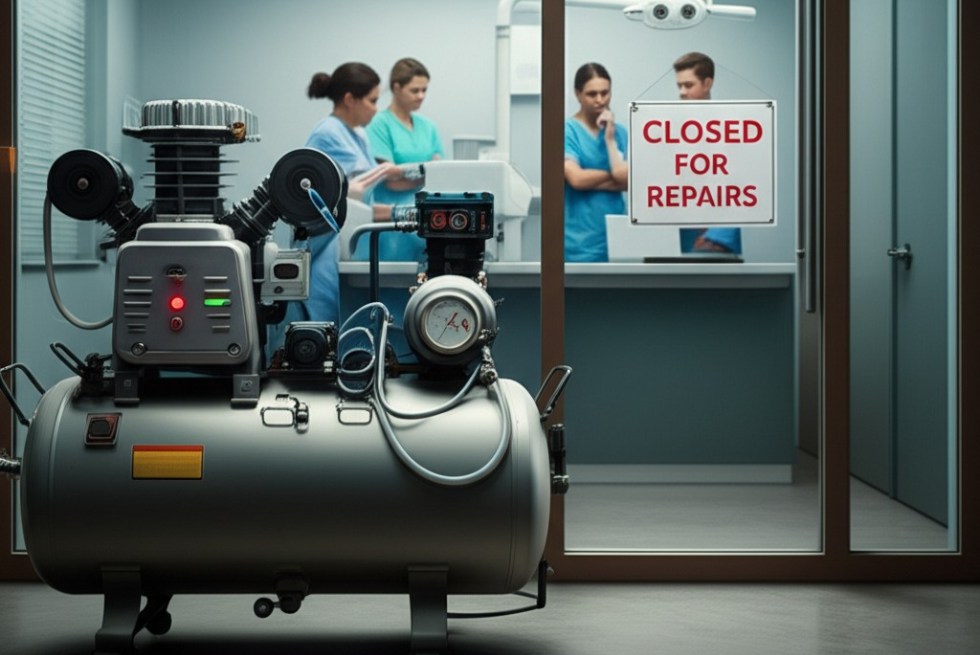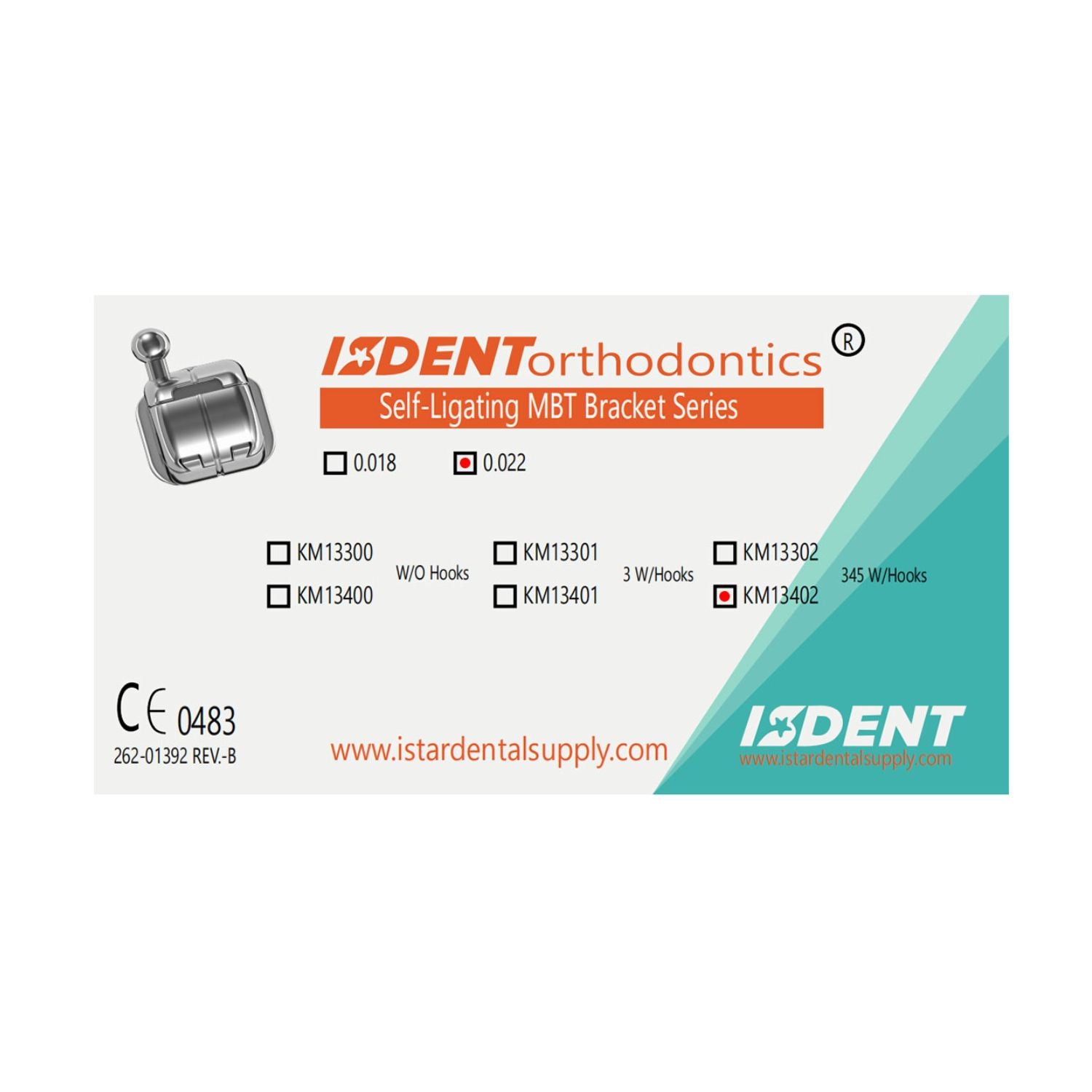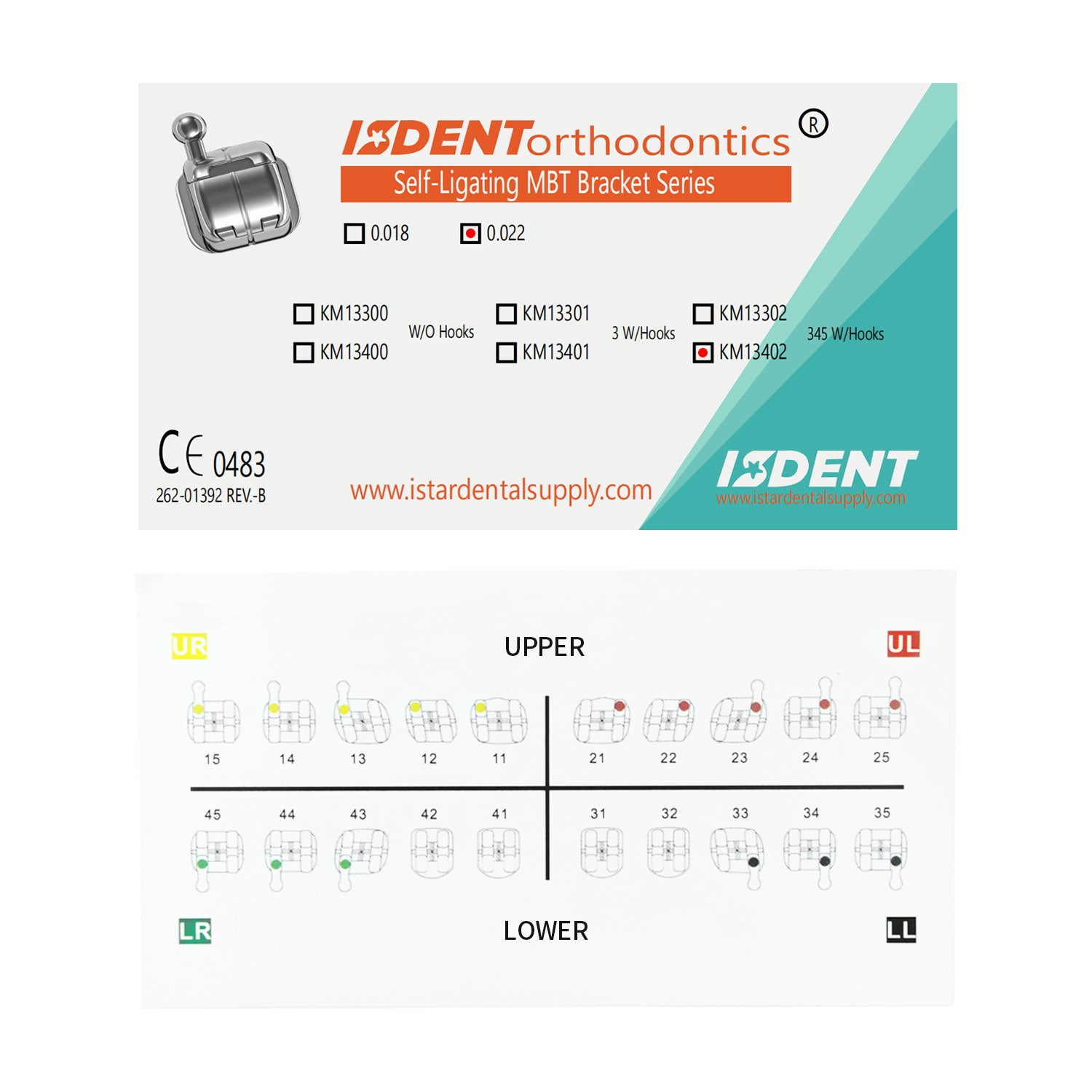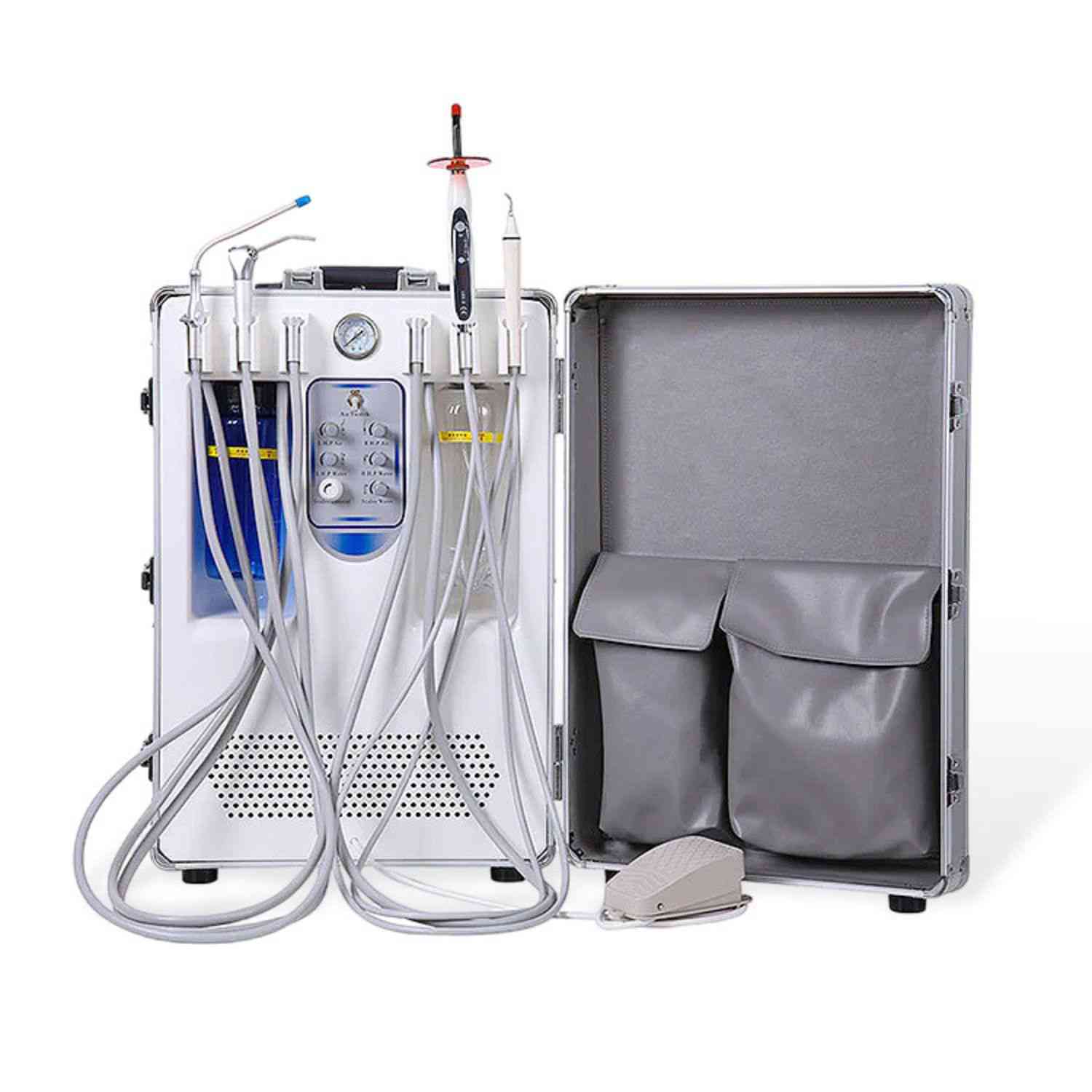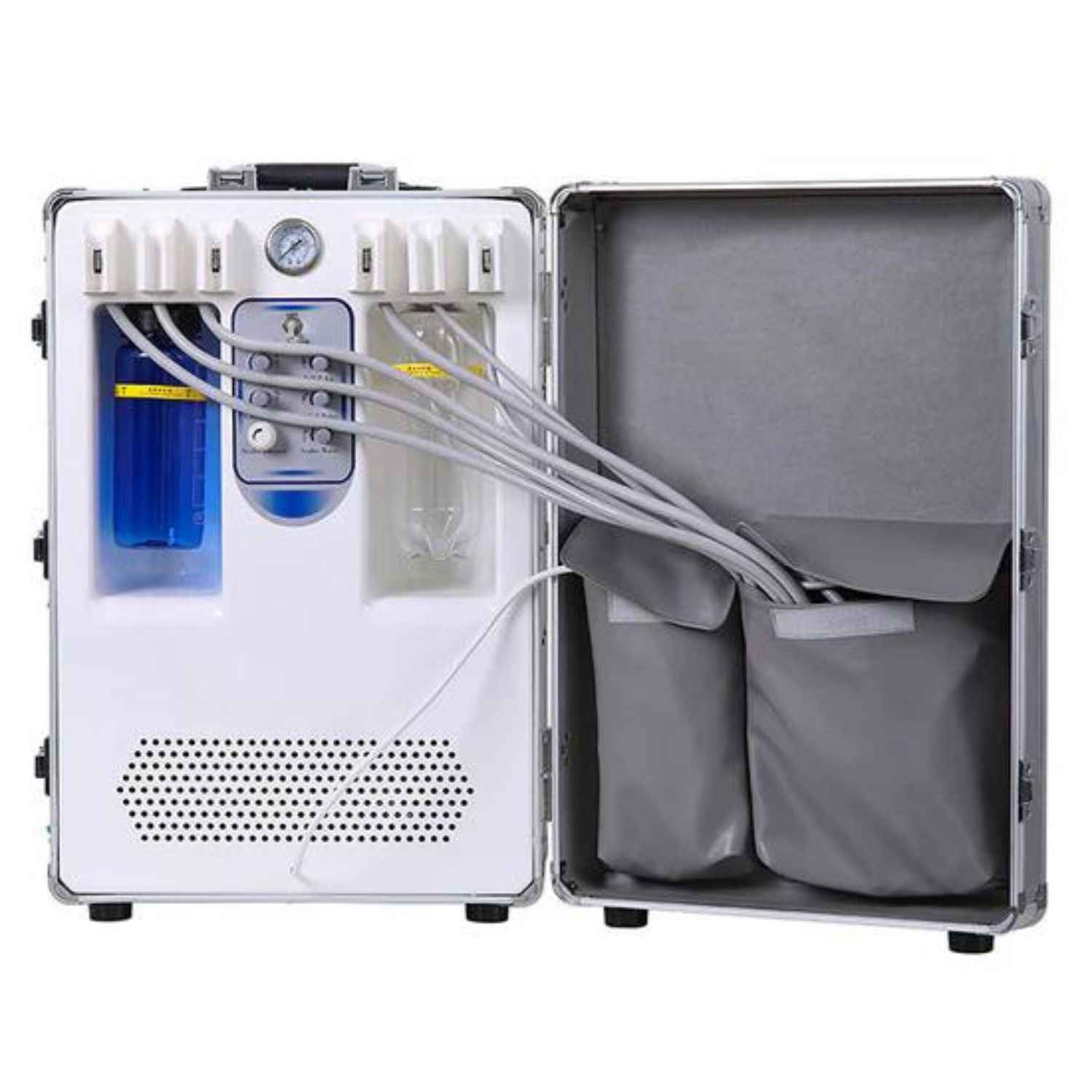Dental Air Compressor Failure: How Equipment Breakdowns Disrupt Patient Care (and How to Prevent It)
Introduction
Did you know that 72% of delays in dental care happen because of broken equipment? When dental air compressors stop working, it causes big problems. Patients can't get the care they need. Dentists lose money. And everyone feels frustrated.
This article shows how compressor failures hurt dental practices and their patients. We'll also share simple ways to prevent these problems.
Immediate Effects on Patient Care
Clinical Operations Paralysis
When a dental air compressor breaks down, almost everything in the office stops working:
- Dental handpieces (the drills dentists use) won't run
- Tools that need air pressure fail
- Dentists must cancel appointments
- Patients wait longer for care
Dr. Smith from Bright Smile Dental shares: "Last month, our compressor failed during a root canal. We had to reschedule 15 patients that day. Everyone was upset."
According to research, clinics with broken compressors cancel at least 3 appointments per day. This means many patients don't get the care they need.
Patient Safety Risks
A broken air compressor isn't just inconvenient—it can be dangerous:
- Moisture and oil from bad compressors can get into patients' mouths
- Germs grow faster in wet air lines
- Delayed treatments make dental problems worse
The CDC (Centers for Disease Control) warns that bad air quality in dental tools can lead to infections.
90% of oil-lubricated compressors risk contaminating the air lines when they fail. This forces dentists to cancel appointments for safety reasons.
"Patient safety always comes first. If our compressor isn't working properly, we can't risk exposing patients to contaminated air." — Dr. Johnson, Family Dental Care
Financial & Operational Consequences
Direct Costs
Compressor failures hit dental practices hard in the wallet:
| Cost Type | Average Amount | Impact |
|---|---|---|
| Emergency repairs | $200-$500 per hour | Unexpected expense |
| Lost appointments | $1,200 per day | No income while closed |
| Replacement parts | $1,500-$5,000 | Major budget disruption |
A single day without a working compressor costs a typical 5-chair dental office $1,200 in lost revenue. That's money the practice can never get back.
Need reliable equipment to avoid these costs? Check out ISTAR Dental's trusted compressors that many dentists depend on.
Hidden Costs
Beyond repair bills, compressor failures cause other expensive problems:
- Staff must work overtime to call and reschedule patients
- 15% of patients leave for good after repeated cancellations
- Insurance companies may penalize practices for missed deadlines
One study found that practices lose about $12,000 per month from all these hidden costs combined after major equipment failures.
Compliance & Reputation Risks
Violated Standards
Dental offices must follow strict rules about cleanliness and safety:
- OSHA (Occupational Safety and Health Administration) requires clean air
- CDC guidelines demand proper sterilization
- HIPAA (Health Insurance Portability and Accountability Act) requires timely record-keeping
When compressors fail, dental practices often break these rules without meaning to. This can lead to fines and legal problems.
Brand Damage
Today's patients share their experiences online:
- 80% of negative reviews mention "equipment issues"
- Patients view technical problems as unprofessional
- Other dentists stop referring patients to practices with equipment problems
"After our third cancellation due to compressor issues, we saw our online rating drop from 4.8 to 3.9 stars," reports Dr. Garcia from Gentle Dental. "It took months to rebuild our reputation."
Prevention Strategies (Data-Backed Solutions)
Smart dental practices prevent compressor problems before they start. Here's how:
Maintenance Best Practices
Daily Tasks:
- Drain moisture traps to prevent water buildup
- Check pressure gauges for normal readings
- Listen for unusual noises
Monthly Tasks:
- Replace coalescing filters that trap oil and dirt
- Clean air intake screens
- Test automatic shut-off systems
Annual Tasks:
- Schedule professional inspections
- Test CFM (Cubic Feet per Minute) output
- Replace worn parts before they fail
Practices that follow these steps see 40% fewer failures and have significantly fewer canceled appointments.
For high-quality maintenance supplies, many professionals trust ISTAR Dental's compressor parts and filters for reliable performance.
Equipment Selection Criteria
Choosing the right compressor makes a huge difference:
Oil-free compressors:
- Cost more initially
- Reduce contamination risk by 90%
- Need less maintenance
Oil-flooded compressors:
- Cost less to buy
- Need more frequent maintenance
- Higher risk of air contamination
Redundant systems:
- Include backup compressors
- Cut downtime by 60%
- Pay for themselves after one major failure
The best models come from trusted brands like Kaeser Dental and Atlas Copco, which show excellent reliability in dental settings.
Looking for the perfect dental compressor for your practice size? Read ISTAR Dental's Compressor Buying Guide to make an informed choice.
Emergency Protocols
Even with good maintenance, emergencies happen. Be prepared:
- Keep contact information for rental compressor services handy
- Train staff on quick-connect systems to swap compressors
- Develop a patient communication plan for unexpected closures
- Have a priority system to handle the most urgent cases first
Practices with emergency plans reduce downtime from 5 days to less than 48 hours, according to case studies.
Real-World Impact: Case Studies
Case Study #1: Small Family Practice
Situation: A three-chair practice with no backup compressor experienced a major failure.
Impact:
- Closed for 4 days
- Lost $4,800 in revenue
- Had to pay $3,200 for emergency replacement
- 3 patients left permanently
Solution: Installed dual compressor system with automatic switching.
Result: No complete shutdowns in 18 months since installation.
Case Study #2: Large Dental Clinic
Situation: 12-chair clinic had old compressors without regular maintenance.
Impact:
- Frequent partial shutdowns
- Staff frustration and overtime costs
- 25% longer wait times for patients
- Moisture problems in air lines
Solution: Implemented daily maintenance checklist and quarterly professional service.
Result: 30% drop in cancellations and improved staff morale.
Comparison: Preventive vs. Reactive Approaches
| Approach | Annual Cost | Patient Impact | Staff Stress | Long-Term Outcome |
|---|---|---|---|---|
| Preventive | $1,200-2,400 | Few cancellations | Low | Steady growth |
| Reactive | $3,500-15,000+ | Frequent disruptions | High | Patient loss |
The numbers clearly show that preventing problems costs much less than fixing emergencies.
Step-by-Step Prevention Plan
-
Assess your current system:
- How old is your compressor?
- What's your maintenance history?
- Have you had previous failures?
-
Create a maintenance schedule:
- Use a wall chart or digital calendar
- Assign specific staff members to each task
- Document all maintenance activities
-
Build relationships with service providers:
- Find reliable technicians before emergencies
- Discuss service agreements with discounted rates
- Ask about loaner equipment options
-
Train your team:
- Show everyone how to spot warning signs
- Create simple troubleshooting guides
- Practice emergency procedures
-
Plan for upgrades:
- Budget for replacement before failure
- Research new technology advantages
- Consider financing options for better equipment
Conclusion
Your dental air compressor might not seem exciting, but it's the heart of your practice. When it fails, patient care suffers, money is lost, and your reputation can be damaged.
The good news? Simple, regular maintenance prevents most problems. Practices that take care of their equipment see:
- Fewer canceled appointments
- Higher patient satisfaction
- Lower overall costs
- Less stress for everyone
By following the advice in this article, you can keep your practice running smoothly and your patients smiling.
FAQ Section
Q: How often should dental compressors be serviced? A: Daily moisture checks, monthly filter changes, and professional service every three months (quarterly).
Q: Can compressor failures cause infection risks? A: Yes. CDC studies show that moisture in air lines creates perfect conditions for harmful bacteria to grow.
Q: What's the worst-case cost of a compressor breakdown? A: A major failure can cost over $5,000 in repairs plus $12,000 or more in lost appointments each month.
Q: How long do dental air compressors typically last? A: With proper maintenance, a quality compressor should last 7-10 years. Without maintenance, as little as 2-3 years.
Q: Can I install a dental compressor myself? A: Professional installation is strongly recommended. Improper installation can void warranties and create safety hazards.
Remember: Preventing compressor problems is much easier than dealing with the chaos they cause. Take care of your equipment, and it will take care of your patients.

